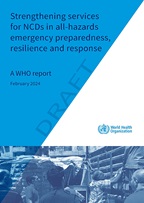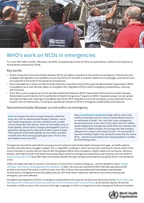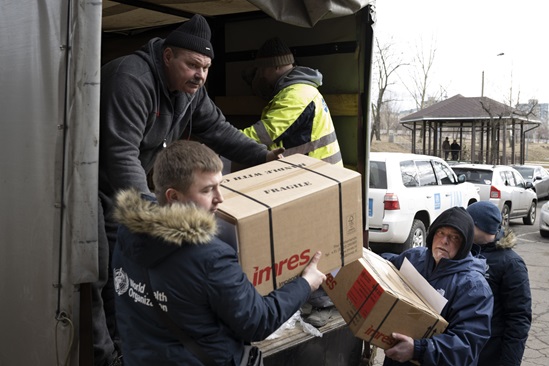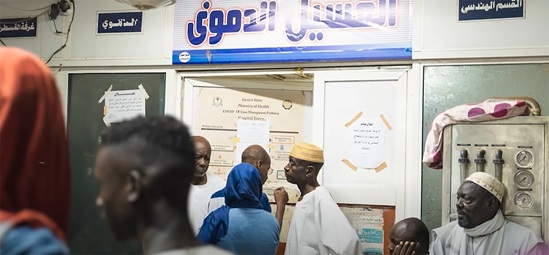A group of 8 people watching a person uncovering supplies from a truck
Strengthening NCD integration in humanitarian emergencies
Recent humanitarian emergencies, and the COVID-19 pandemic, have highlighted the lack of health system readiness to meet the needs of people living with noncommunicable diseases (NCDs) during periods of service disruption. Crises exacerbate existing health conditions, restrict access to essential medicines and worsen mental illness, resulting in higher mortality in people living with NCDs. Protracted emergencies – in which people may be displaced within their own countries or live as refugees for years – may also dramatically affect access to treatment, screening and diagnosis, and impact the ability to lead a healthy life, which increases the risk of NCDs and future complications.
WHO supports Member States in establishing national NCD action plans to integrate NCD services into primary health care, with national and facility-level contingency plans to ensure continuity of care for people living with NCDs (PLWNCDs) when services are disrupted. WHO works with departments responsible for health emergencies and disaster risk management to ensure that emergency preparedness considers PLWNCDs early in emergency response.
In 2021, the WHO Health Emergencies Programme and the Department of Noncommunicable Diseases (NCD) established a joint programme to improve NCD integration, aligning health systems work with health emergency preparedness and resilience work.
Activities include a broad landscaping review of NCD integration in recent humanitarian emergencies (including country case studies); regional workshops to develop regional frameworks for action; development of an operational manual on NCDs in emergencies; revision of the WHO NCD emergency kit; and operational reviews in current humanitarian emergencies focusing on NCD care.












/noncommunicable-diseases-rehabilitation-and-disability-(ncd)/office-of-the-director-ncd-(odn)/european-regional-consultation.jpg?sfvrsn=68850b45_4)
/noncommunicable-diseases-rehabilitation-and-disability-(ncd)/office-of-the-director-ncd-(odn)/emro-ncds-in-emergencies-event.jpg?sfvrsn=a6ccb99e_4)